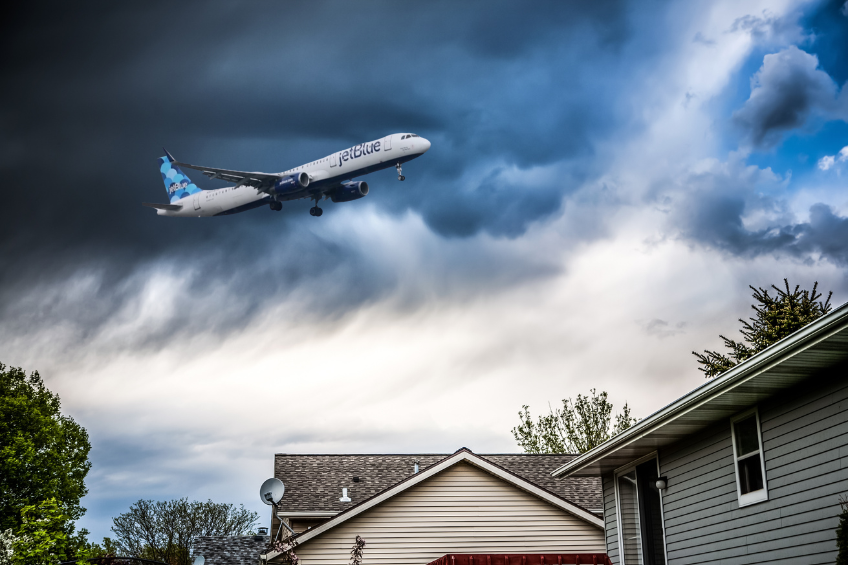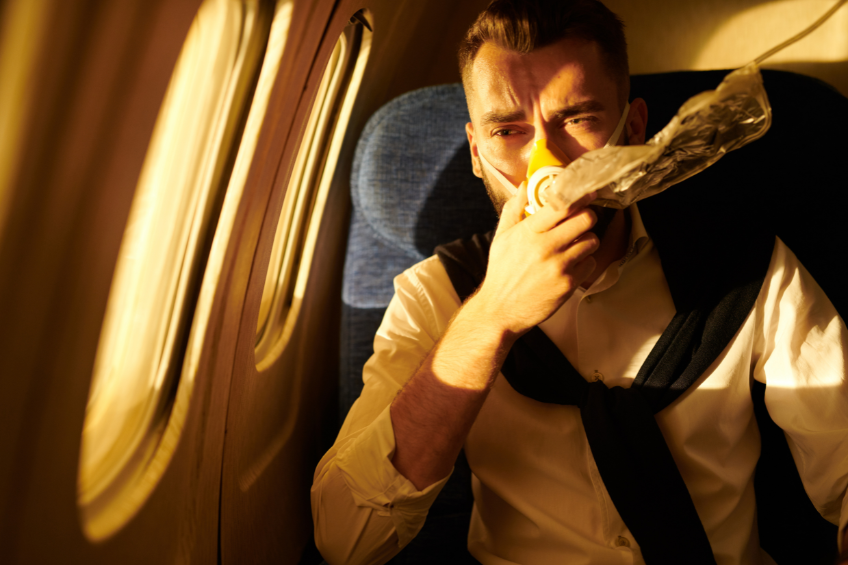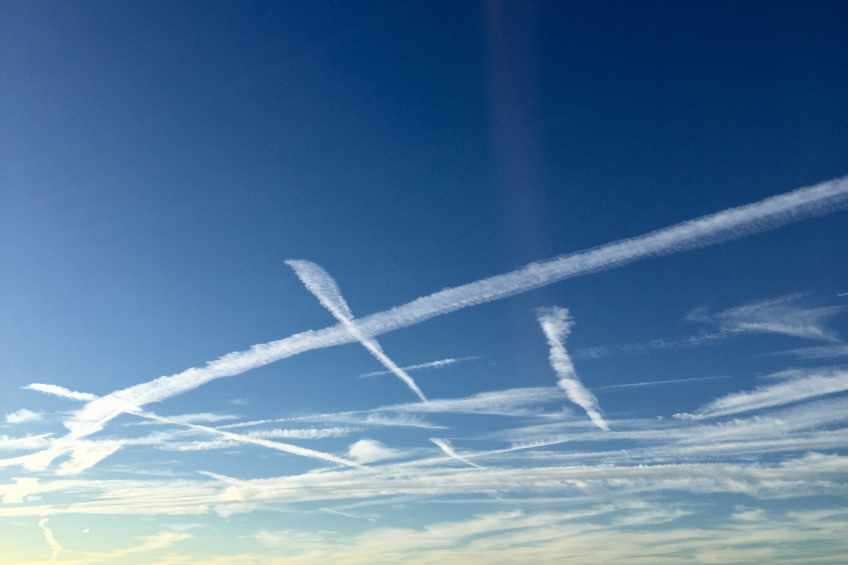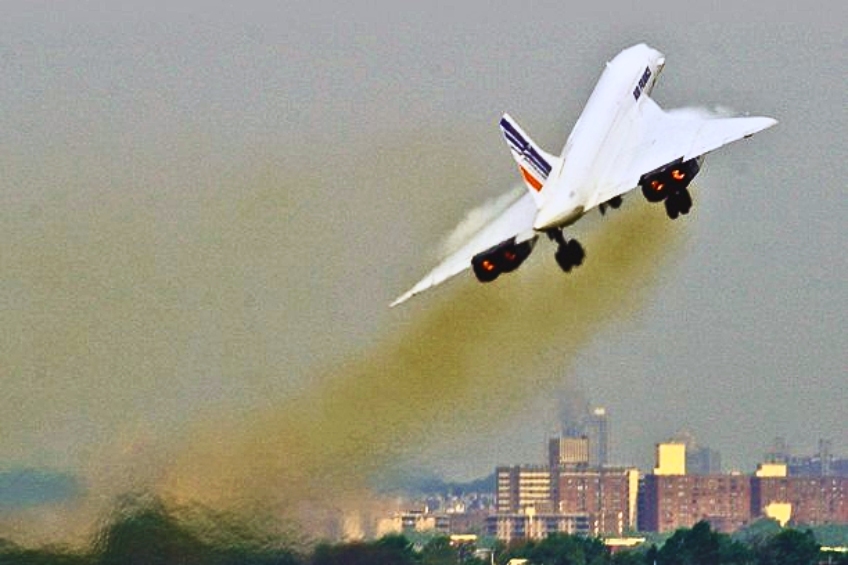Air Quality In Aircrafts & Neighborhoods Near Airports
Whether you’re flying or driving, air quality should not be a concern for you. Yet unfortunately both in the air and on the ground, airplanes affect the air quality around us. Flying should be a pleasurable experience especially with all the bonuses that are offered such as watching or listening to a great variety of entertainment options geared to all different tastes and ages. On long distance trips folks anxiously await the food service, not necessarily due to starvation but just as much to improve the monotony of the extended airplane ride.

The air quality in the aircraft cabin while flying in the air and the air quality of the citizens on ground is of very crucial concern to those people in the air and on the ground. While those folks up in the skies are watching their favorite program and eating their “gourmet” meals, the folks down below are breathing in harmful pollutants caused by burning airplane fuel. People who live near an airport can testify to loud noises that explode when a plane takes off or lands along with a tail of smoke from the fuel.
There is a dual problem with airplanes as modes of transportation both for the passengers in the cabins and folks living under the flight paths of the aircraft. These are two distinct issues which must be dealt with individually since aircraft cabins have windows that do not open so we may be under the impression that the issue with air quality inside the cabin is exclusively internal while air quality on the ground is contaminated by the burning of the jet fuel.
The Air Quality in Aircraft Cabins Due to Bleed Air
Unfortunately, this is not the case because when aircraft are in flight, outside air taken straight from the engines is pumped back into the cabin which is pressurized in order to have sufficient oxygen while in the air. The air that is brought into the aircraft as it gets heated by the engine is called “bleed air” which surprisingly comes straight into the cabin without any filtering. This means that the fuel oil that is burning while the plane is coasting becomes gasified which can cause disturbances in the air quality in the cabin causing people to encounter health disorders such as heart palpitations and headaches.
Professional flight attendant Shannon De Witt is presently on sick leave because he began to experience the above symptoms. When the oil from the jet fumes enters the cabin, it is called a fume event and according to De Witt, an airline veteran flight attendant for eighteen years, Dewitt did not get sick instantly rather his symptoms developed gradually over the years. This does not mean that all aircraft have this issue since there are new aircraft that do have air quality control filtering solutions that successfully filter the cabin air that surpass safety standards. Another example of long term health effects from cabin air quality is Dr Susan Michaelis, a former pilot who was forced to resign in 1997 who had been experiencing symptoms for three years prior to her resignation. Other pilots who are still flying are often afraid of losing their jobs, so they fail to report the air quality problems on their planes.

Actor Miles Teller spoke about his horrible experience while he was filming a popular film about aviation called Top Gun. After a flight landing, he broke out in hives and felt so hot that he went straight to the doctor. His blood test indicated the presence of ‘flame retardant” pesticides as well as jet fuel present in his blood.
Passengers and crews can be inhaling contaminants without knowing but often it’s crystal clear that the air quality on the aircraft is poor. Many years ago, I was flying from Detroit to New York on a cheaper airline and was assigned to a first-class seat because all the other seats were booked. One would imagine that being in first class would be a wonderful experience especially without paying extra. I definitely got more than I bargained for but in a surprisingly negative way.
I was seated in the first row right at the back of the pilot’s cabin. Midair I overheard the flight attendants and pilot speaking to each other concerned that there was a smoky smell in the front of the cabin. They were asking each other what it could be while I, a nervous flier to begin with, was getting quite agitated by their conversation. We thankfully landed safely, and I now know that what they were describing is called “a fume event”.

Fume events are worrisome because pilots can become disabled during the flight endangering the lives of the passengers as well as the crew. Air in the passenger and pilot cabins becomes contaminated by the fumes from the fuel that are inhaled. Some fuels are made of hydraulic fuels and synthetic oils which cause a potentially dangerous symptom named, ‘aerotoxic syndrome”.
Congressman Maxwell Frost has introduced a bill to the House that would discontinue the present air systems on older models. Planes such as the new Boeing 787 Dreamliner have repaired the issue of bleeding air in those aircraft and new legislation would make sure that all aircraft new and old will have new and improved systems to remove all toxins from cabin air. The bill is now being sent to the Committee of Transportation and Infrastructure.
Boeing aircraft presently are utilizing the filters that hospitals use called HEPA filters so that air recirculates in the cabin after being filtered. This way it’s not the same contaminated air recirculating again and again.
Outdoor Air Quality of Neighborhoods Near Airports
Living near the airport has certain advantages such as the ease of picking up and dropping off passengers or a free trip with the kids to watch the planes land and take off. However, anyone who lives near a major airport as this author knows how annoying and unhealthy it is. There are two issues that affect the quality of life of home residents who live near an airport. The first one is noise pollution, which is a major annoyance especially if the flight path is right above your home.
Years ago, the flight plans were quite frequent but over the last many years the port authority has tried to alternate the flight plans over the towns of Lawrence, Inwood, Cedarhurst and Rosedale, Long Island to name a few. This variety of flight plans does improve noise pollution but not if you happen to have a major outdoor party or barbeque on one of the days of flight plans in your area. This is exactly what happened to my daughter. She and her family planned their major event to the last detail including having a close friend man the barbeque so that her family could host the guests properly. However, just as someone was starting to speak the intense noise began from the aircraft traffic. There is no one to call since the traffic patterns are arranged in advance and are subject to last minute changes depending on the weather and other variables.
In the 1970’s there was a short time when the supersonic Concorde was taking off and landing at Kennedy airport. Opposers tried protesting near the airport and collecting dollar bills from innocent citizens of the area who believed that their contribution would help prohibit this noisy plane from contaminating the community airspace. For the short time that the Concorde was in the air, folks realized that the noise problem was nothing but a scam since the SST was not much louder than the average jet. Yet, the Concorde was discontinued shortly after because of safety issues not noise issues.

Noise pollution is definitely an important issue but a worse problem than noise pollution is air quality pollution caused by the burning of jet fuel. Yes, noise pollution can wake up babies who have hard to get to sleep, interrupt parties and have other adverse effects on the quality of life of nearby residents at airports. However, the long-term effects of aircraft air pollution may only be realized decades after people are exposed to it causing various health issues including cancer.
Nassau County and Town of Hempstead supervisors have petitioned the FAA to perform a compulsory review of air and noise pollution from the aircraft flight paths near houses near the airport. While this pollution has always been an issue, the increased air traffic, especially on holiday weekends is putting folks at even a greater risk for illness and hearing problems.
Hempstead Town Supervisor Don Clavin complained that planes can take off and land as often as every ninety seconds with heavy noise and air pollution at their tails. Residents cannot understand why the planes cannot be rerouted over water bodies and parks instead over private homes.
According to the EPA (The Environmental Protection Agency), any aircraft that flies below 3,000 feet is the cause of increased air pollution. Even while coasting airplane fuel is burned but is especially harmful on take offs and landings. Prostate and stomach cancers and asthma have been documented to be higher in the areas that are directly exposed to aircraft fuel combustion. Some of the dangerous pollutants that are emitted are sulfur dioxide, hydrocarbons and carbon monoxide.
Final Words
As flying continues to be the most popular mode of transportation, the air pollution from burning fuel will only get worse causing illness and even death. Since Elon Musk has not been advertising electric jets yet we must find a way to reduce the poisonous air that is emitted over homes that are situated near airports. New York City has two major airports, Kennedy and LaGuardia, that are near each other. This is a double whammy for citizens who live within twenty minutes of these airports. Noise pollution is an additional problem that interrupts the daily lives of the residents. New hotels being constructed in the vicinity of major airports are now installing noise-abating windows that drown out most of the noise from the airplanes. However, private residences do not have this feature, nor do they have the correct air pollution screenings to prevent the bad air from coming into their homes or interfering with children playing outside on a sunny day. Citizens have waited long enough for the government to come in and solve these problems yet only through the FAA and the EPA will issues improve. These problems will not be solved by the private sector and folks volunteer to get into an aircraft risking inhaling unsafe air while in flight but those citizens on the ground do not have a choice breathing in the polluted air that is the only air available to them.

